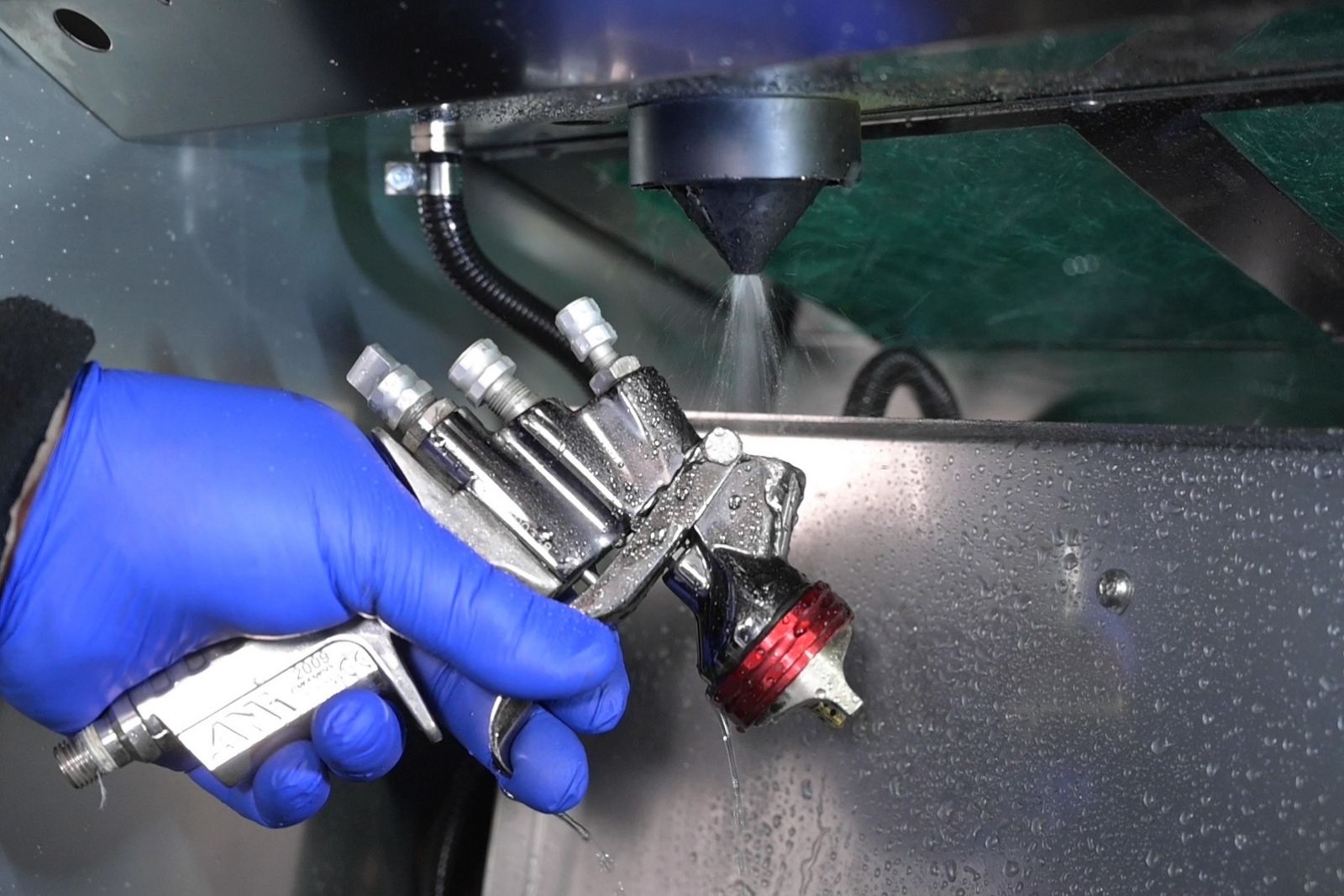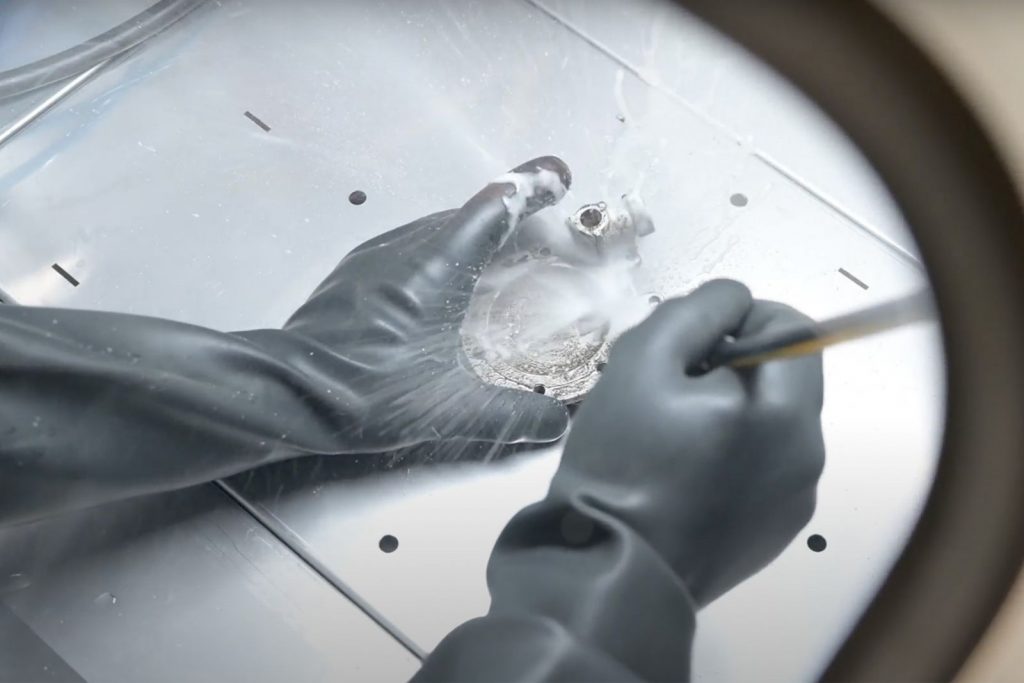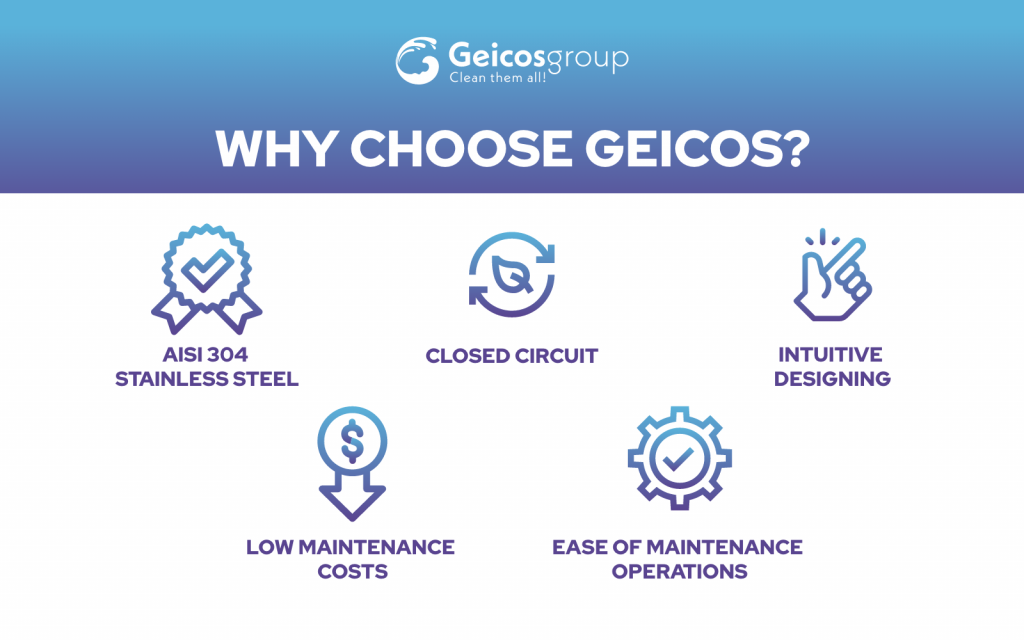
The importance of cleanliness in all manufacturing processes
The cleaning of industrial parts has become an integral part of the production process, so much so that it has to be counted among the investment items in the budget. It is therefore necessary to choose the type of washing and equipment that best suit your needs, to avoid waste and ensure maximum efficiency throughout the process.
Table of contents
1. Cleaning the parts: a necessary and fundamental step
The cleaning of pieces of various kinds (mechanical, electronic or plastic) is acquiring ever greater importance in the production processes of companies. Indeed, we could say that it is becoming even fundamental.
The methods are different, the specific needs and the production impact is variable. Therefore, the percentage value of cleaning has an important weight and is flexible depending on:
- The nature of the business;
- Of its productive power;
- The type of process (i.e. if it is interoperational or final in the realization of the product).
In general, we can say that cleaning with respect to the total investment now has a minimum percentage value ranging from 10% upwards.
Furthermore, it is good to remember that the quality requirements are constantly increasing. Consequently, the cleaning of components or pieces becomes a delicate and important phase of the entire production process. The importance of having reliable, functional and effective equipment is then directly proportional.
Company needs are to be considered unique and specific, which is why a controlled, reliable and very efficient washing technology is needed to guarantee the quality and cleanliness of the parts. Nothing should be left to chance, whether the company is a manufacturer of automotive components, whether it operates in the metalworking industry, or whether its reference sector is the graphics industry. Size, weight, geometry, workmanship and construction material must be taken into consideration and must have the same importance.
2. One need, many applications
Let’s take a closer look at the applications in some of the main production sectors:
- In the automotive world, cleaning involves the removal of synthetic oils, greases and mineral deposits from mechanical parts;
- In the steel industry, the removal of acid pickling residues required after welding;
- In the electronics industry, the difficulty of removing resins and solder paste on boards and integrated is faced;
- In the field of plastics, as well as in the graphic one, the need is to clean products from inks, resins, monomers or other additives.
As we can see, there is no single problem but there is instead a single need. To clean. Clean effectively, precisely and with simple and easily assimilable procedures. The washing process must guarantee effective results and must be carried out quickly by all operators.
To be truly considered as such based on the intended purpose, cleanliness must guarantee:
- The removal of production residues in order to proceed with the subsequent operations of the chain;
- The quality of the product based on individual needs and within the ranges described by the quality department;
- Functionality, that is, it must not weigh or aggravate either the production process or management costs.
Having highlighted the importance of washing and its many aspects, investment in equipment that can serve this purpose is no longer considered an accessory but implemented and included in the budget. Thus arises the need to create new perspectives and increasingly simple and effective ways of working.

3. How to choose the most suitable equipment?
At this point, determining the correct equipment to fulfill this need is an essential aspect. The machines used for washing industrial parts are called parts washers and are specifically designed to remove residual contaminants from the production process.
They can wash different types of materials, from mechanical components to glass, from plastic to ceramics, up to rubber. As for the contaminants, they are able to act effectively on oil, grease, rust, resin and much more.
The parts washers can be of two distinct types: manual or automatic.
4. Valid support for the operator: manual parts washers
With manual parts washers, it is the operator who takes care of the entire cleaning procedure. Using a spray brush, he can direct the liquid onto the pieces to wash them and remove contaminants.
These machines often come in different models and sizes and can wash the production components of many industries.
5. Automating the cleaning process: automatic parts washers
The automatic parts washers, on the other hand, have a basket on which the operator places the piece to be washed. When the machine starts working, the liquid is sprayed in a jet while the piece is rotated on the basket. Automating the entire washing process allows you to increase productivity, improve the quality of washing and ensure high safety standards.
This type of machine is ideal for cleaning components of industrial activities that need to dispose of production oils and clean some specific elements.
Or there may also be a semi-automatic part washer, capable of combining the manual washing phase with the automatic washing phase..Let’s not forget that the choice of the machine that best suits your production needs must also be related to the type of detergent to use. In fact, we will also have to implement the purchase and management costs of the detergent, in addition to the costs related to the maintenance of the machinery.
6. The solutions offered by Geicos
Geicos group has been operating in the industrial washing sector for twenty years. Thanks to our experience, we develop equipment capable of complying with the relevant European regulations. Furthermore, all our machines have always been conceived and designed according to the principle of detergent recycling to guarantee greater savings, respecting the health of workers and guaranteeing a low maintenance impact.
Thanks to these characteristics, the equipment is transformed into a real consolidated and reliable partner of the company. An ally that is impossible to give up. Our machines have some peculiarities that make them efficient and competitive:
- they are built in AISI 304 stainless steel: this top-of-the-range material guarantees the durability of the parts washer over time, making it a cost that can be amortized in the short term and easily recyclable, therefore eco friendly;
- they are designed in a closed circuit: it is possible to reuse the detergent product that is filtered to have a longer life. This recirculation system is particularly economical;
- they are designed in an intuitive way: the machines are easy to use and guarantee considerable savings in terms of training for the washing staff;
- guarantee the reduction to a minimum of consumable materials: let’s think, for example, of steel filters that need to be cleaned. This results in extremely low maintenance costs for the machine;
have a high ease of maintenance operations: the maintenance process of parts washers is easy to learn and requires less time than other similar machines. Therefore the maintenance operations on our industrial parts washers are simple and economical.

In conclusion, the cleaning process in the production activity must be considered as an essential step for every company. As such, it must be ensured in ways that guarantee the safety of the operators, the effectiveness of the result, the saving of time and resources and respect for the surrounding environment.